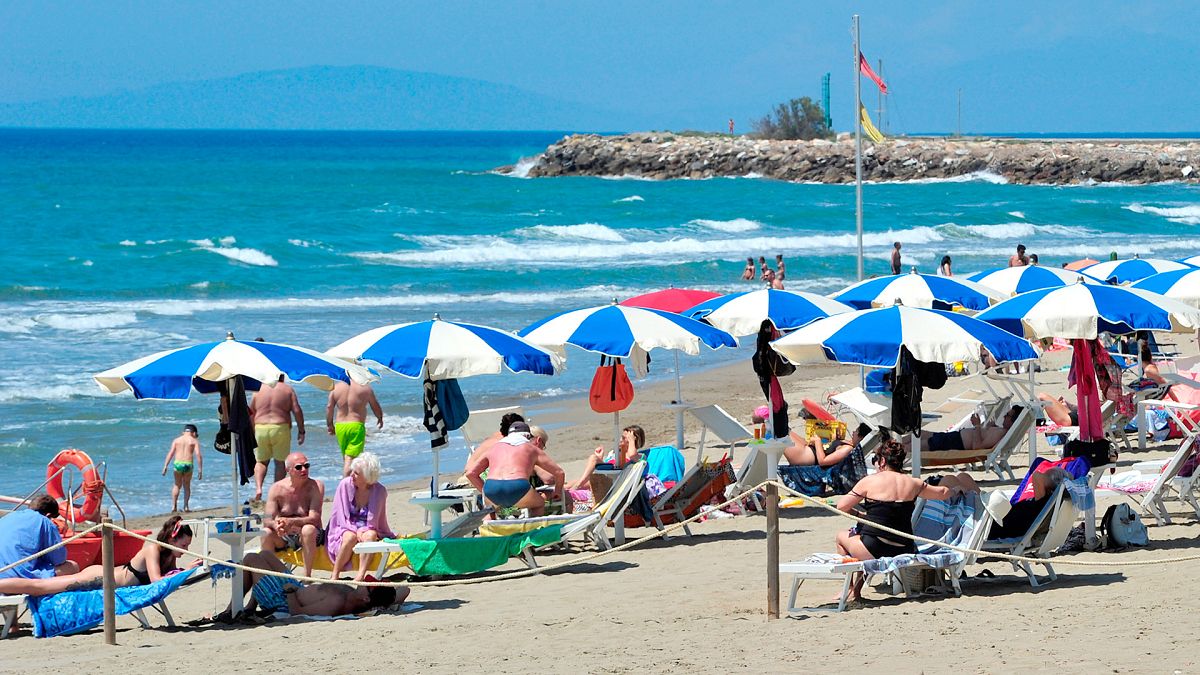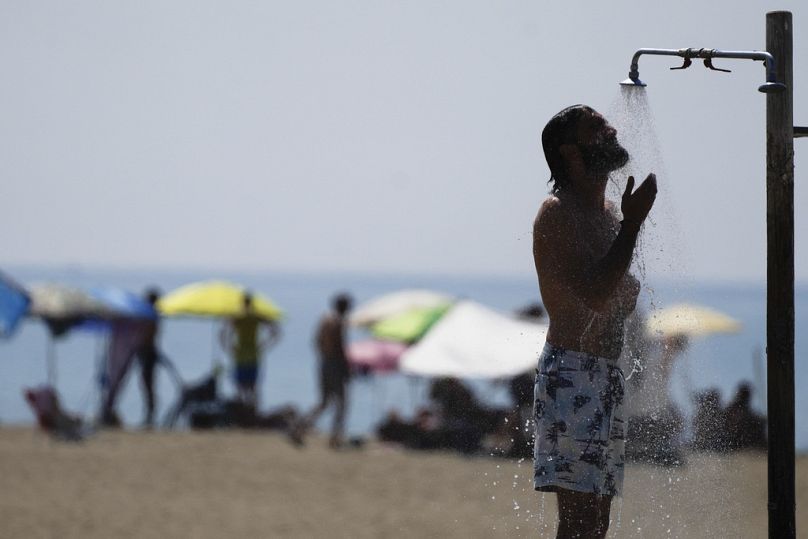Beach clubs have a significant impact on Italy’s economy, as the tourism sector accounts for around 6% of the country’s total GDP.
In Fiumicino, a stretch of coastline an hour’s drive from Rome, beach concessions and the lack of a national law regulating them are the main — if not only — talking points.
Beach club operators, known in Italy as lidos, range from businesses renting out sunbeds and umbrellas to those running beachfront restaurants and bars.
Under EU competition rules — known as the Bolkestein Directive, agreed in 2006 — licenses for beach clubs will be up for tender from January 2026, a move that threatens tradition where lidos have been run and passed down by the same family for generations.
The Italian government has been late complying with the directive, which aims to increase competitiveness by freeing up the market in several sectors.
In response to the new law's impact, some beach club owners have gone on strike. Others have united to face the challenge of potentially losing their licenses.
'Lifestyle passed on, generation after generation'
Marco Lepre, a beach club operator himself, has formed a group representing 11 business owners stretched across the two-kilometre stretch of Fiumincino’s coastline.
“The aim of the initiative is to take part in the tenders that now seem inevitable using our best tools and skills as a business network”, Lepre said.
“Our idea is to share projects that will allow the local municipality to stand out and get the highest score.”
Lepre explained the way the sector works in Italy is very different from other EU member states as it is dominated by family-owned businesses.
“They have invested resources, they have created a lifestyle that has been passed on generation after generation,” Lepre continued.
Beach clubs have a significant impact on Italy’s economy, as the tourism sector accounts for around 6% of the country’s total GDP.
However, the Council of State — Italy's administrative body that serves as the public administration's legal watchdog — ruled recently that concessions cannot be renewed automatically, adding to the effects of the infringement procedure initiated by the European Commission in 2020.
Some of Italy's trade organisations, including the country's association of seaside workers, Federbalneari, have decided to put their trust in the government’s efforts to settle the dispute.
"We have decided not to strike as we believe that it’s better to sit at the same table with all the actors involved and work together on a reform,” Marco Maurelli, the president of Federbalneari Italia, told Euronews.
“We are prepared for any scenario. We hope that the government will play its part when liaising with the European Commission in these very complex and exhausting negotiations,” Maurelli said.
“Meloni’s government has come up with a formal document to negotiate a reform with the Commission. It’s the first time this has been done in 15 years, and we have trust in the government’s actions.”
Slapped with steep fines
As Elonora Poli, head of the Centro Politiche Europee think tank told Euronews, beaches in Italy are state-owned and can be managed for profit through concessions allocated by local authorities like regions or municipalities.
“But with time running out”, she said, “and with such an ambiguous legal framework in place, the consequences for Italy of not having a national law could be quite significant."
“Italy risks very expensive fines,” Poli continued.
“It’s not a problem that started with Meloni’s government, it’s an issue that the country has been dealing with for years."
"Rules at a national level are needed in order to establish how concession allocations should be renewed. They should then be enforced by all municipalities and regions,” she concluded.













